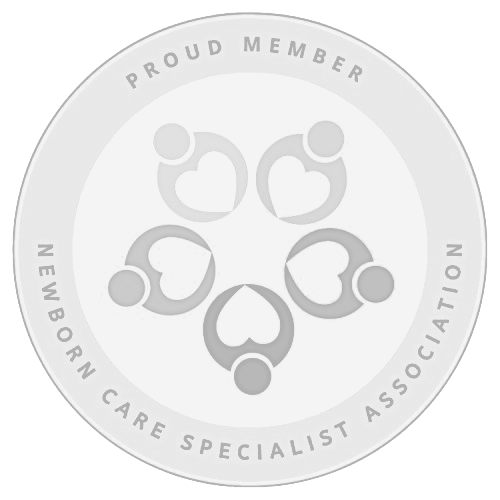Every third Friday in February is a day of deep gratitude, National Caregivers Day. It casts light on the silent helpers of family or health care—the caregivers who offer their unwavering support and compassion. Our caregivers form the bedrock of everyday care for individuals with illnesses, disabilities, the elderly, or in childcare, often without any recognition.
Historically, caregivers have toiled in the shadows, their sacrifices and resilience unnoticed by the broader social narrative. Yet, in the face of adversity, they remain a pillar of strength for their loved ones. Studies indicate that caregivers provide a staggering 470 billion dollars worth of unpaid care annually, a testament to their immeasurable impact on health systems and family structures. National Caregivers Day reminds us to acknowledge and appreciate caregivers’ invaluable contributions by taking a moment to honor them.
Understanding the Role of Caregivers
Caregiving is a labor of love that often remains unseen, its value immeasurable. Behind every recovery story, every day of comfort for those who otherwise would struggle, stands a caregiver—a sign of hope and a hand of comfort.
According to the American Psychological Association, caregiving includes a range of activities and responsibilities to support the health and well-being of individuals who are unable to fully care for themselves. This support may include managing daily activities, providing medical assistance, and offering emotional and social support. It’s not merely a task but a commitment to the welfare of another person, often sustained over long periods.
Their emotional impact is profound as they not only attend to the physical needs of those in their care but also provide essential emotional support, sometimes at the cost of their well-being. Recognizing their role not only highlights their sacrifices but also underlines the essential human connection at the core of caregiving.
Types of Caregivers
Caregivers can be categorized into three primary types:
1. Family Caregivers:
They provide care for a family member or a friend, usually out of love or duty. Although unpaid, their contribution is immense and often constitutes the majority of caregiving efforts. Not to mention, professional nannies offer the care and support needed to raise children and take care of their daily needs.
2. Professional Caregivers:
They are trained and paid professionals such as nurses, nurse aides, and home health assistants. Their care is critical in managing health recovery and ensuring quality of life for those with chronic conditions or disabilities.
3. Volunteer Caregivers:
Unlike paid caregivers, they generously give their time and energy without compensation to support individuals in need, frequently through community organizations or non-profit groups.
Challenges Faced by Caregivers
Caregivers confront numerous challenges that can take a toll on their physical and mental health. These can include physical strain, emotional stress, financial burden, and often a significant impact on their own social life and professional aspirations. According to the Family Caregiver Alliance, caregivers report higher levels of stress, depression, and anxiety compared to non-caregivers. In addition, the economic impact is substantial, with many caregivers experiencing a loss of income due to caregiving responsibilities. Despite these challenges, caregivers persist, driven by compassion and a sense of responsibility, deserving of not just recognition, but also support from the community and policymakers.
Importance of Recognizing Caregivers
Recognition of caregivers goes beyond mere acknowledgment—it’s a gesture of deep respect for those who offer not only their time and energy but also their emotional strength. The compassionate work of caregivers often leaves a lasting mark on the hearts and lives of those they care for, making the need for their appreciation and support vital.
Emotional and Psychological Support
Caregivers are the emotional structure for those in their charge. In their hands lies the ability to transform anxiety into comfort, loneliness into companionship, and often despair into hope. They are listeners, confidants, and often the crucial emotional backbone for those wrestling with the vulnerabilities of illness or age. The psychological support they offer is not just ancillary—it is central to the well-being and recovery of those they aid. Studies show that the quality of a patient’s emotional interactions with their caregiver can positively impact their overall health outcomes by 21%. This emotional labor, while often unquantified, is invaluable.
Social Impact and Community Building
By investing their efforts into the well-being of individuals, caregivers promote a healthier, more interconnected society. Their roles often involve bridging services and resources within the community, ensuring that those they care for are not isolated from the society to which they belong. This social impact is reflected in the focus of organizations like the National Alliance for Caregiving which advocates for inclusive caregiver support across communities. The ripple effects of a caregiver’s work extend far beyond the immediate acts of care, as they foster an environment where solidarity and empathy become communal goals.
Celebrating National Caregivers Day

While caregivers diligently attend to their caregiving duties year-round, specific times are set aside to celebrate and honor their selflessness. Similar to Nanny Appreciation Week, National Caregivers Day is one such opportunity for society to express gratitude and amplify the recognition of those who give so much of themselves. This day encourages reflection on the importance of caregivers and spurs actions to acknowledge their tireless efforts.
7 Ways to Honor Caregivers
There are many ways to recognize and support caregivers. Here are five meaningful suggestions:
- Extend a helping hand: Offer your time and assistance to caregivers, whether it be running errands or providing companionship for those they care for.
- Empathize and listen: Be attentive and sensitive when communicating with caregivers, understanding the physical and emotional demands they face.
- Support caregiver initiatives: Identify local organizations that promote caregiver support and offer your time or resources to their efforts.
- Educate yourself: Learn about the challenges faced by caregivers and share that knowledge with those around you, promoting a greater understanding and appreciation for their work.
- Acknowledge caregivers: A simple “thank you” or note of appreciation can go a long way in recognizing the efforts and sacrifices of caregivers.
- Financial Benefits: Offer your family caregivers financial support, such as a paid respite day or bonuses.
- Self-care Day: From spa days to paid vacations, give caregivers a well-deserved break from their responsibilities.
Social Media Campaigns and Awareness Initiatives
Social media campaigns allow you to raise awareness for caregiver support and recognition. Hashtags like #NationalCaregiversDay and one highlighting National Family Caregivers Month become trending topics that invite the broader public to participate in the conversation.
Informative posts, poignant stories of patient-caregiver relationships, and user-generated content can spark broad societal recognition. Awareness initiatives also extend to the corridors of power, advocating for policies and legislation that provide better support systems, financial aid, and resources to the caregiving community. Together, they create a wave of understanding and appreciation that dovetails with the broader recognition of caregivers’ essential contribution to our society.
Promoting Self-Care for Caregivers
In their tireless commitment to others, caregivers must not overlook their well-being. A focus on self-care is not a luxury—it is a crucial aspect of sustaining the ability to care for others effectively. Prioritizing self-care ensures that caregivers maintain their health, fight off burnout, and provide the highest quality of support to those who depend on them.
Importance of Self-Care
The importance of self-care for caregivers cannot be overstated. The demanding nature of caregiving can take a toll on one’s well-being, making it a must for caregivers such as nannies to engage in self-care practices regularly. This not only preserves their health but also enhances the quality of care they can provide. Recognizing the early signs of caregiver stress, such as irritability, sleep problems, and feelings of overwhelm, is the first step in addressing and mitigating potential health issues.
Strategies for Caregiver Well-being
Strategies for caregivers to maintain their well-being include setting boundaries to prevent overcommitment, seeking social support from friends, family, or caregiver groups, and engaging in activities that promote relaxation and stress reduction. The National Institute on Aging recommends regular physical activity, which can improve mood and reduce anxiety. Mindfulness and relaxation techniques, such as yoga or meditation, have been shown to decrease stress in caregivers. Importantly, caregivers should not hesitate to seek help from medical professionals if they experience persistent feelings of stress or depression.
Supporting Caregivers in Different Settings
Caregivers work tirelessly across various settings, each with its unique set of challenges and rewards. The role they play in home care settings and healthcare facilities is pivotal to the health and well-being of countless individuals. Recognizing the differences in these environments is key to understanding and supporting the caregivers who operate within them.
Home Caregiving
Home caregiving is characterized by its personal and often informal nature. It’s typically provided by family members or friends who offer support to loved ones with chronic illnesses, disabilities, or age-related issues. This also extends to professional nanny services as they care for children in a home environment. In-home caregivers often face unique challenges, such as managing household responsibilities and navigating complex family dynamics.
The intimacy of home caregiving can be rewarding, but it also presents unique challenges, such as a lack of professional training and the potential for caregiver isolation. Resources like the National Family Caregiver Support Program are vital, offering education, respite care, and support services to those in home-based caregiver roles.
Also, professional nanny placement agencies such as Hello, Nanny! provide families with access to trained and professional nannies to maintain their well-being while caring for children in a home setting. With Hello, Nanny! both nannies and families can benefit from the support and resources provided by the agency, creating a better balance for caregivers in their roles.
Learn More About How Hello, Nanny! Can Support Your Family’s Caregiving Needs
Caregiving in Healthcare Facilities
On the other hand, caregiving in healthcare facilities is administered by professionals such as nurses, certified nursing assistants, and home health aides. These caregivers operate within structured environments where protocols and team-based approaches are prevalent. Despite the support of a professional setting, these caregivers often face high patient-to-caregiver ratios, leading to increased workload-related stress. The Bureau of Labor Statistics projects employment in healthcare occupations to grow exponentially between 2022 and 2032, adding about 1.8 million new jobs annually. This growth underscores the demand for skilled caregivers, but also the need for robust support systems to mitigate burnout and ensure sustainable, quality patient care.
Final Thoughts
Overall, it’s become abundantly clear that whether through the selfless, unpaid care of family members, the dedicated services of nannies, or the skilled care provided by health care providers, caregivers are the unsung heroes in our communities. Their impact exceeds the immediate tasks at hand, often becoming the backbone of support for those in need.
On National Caregivers Day, let’s take a moment to reflect on the magnitude of their contribution. It’s a day to not only appreciate but also to shine a light on the selfless work that too often goes unnoticed. Let’s use this day as a reminder to support caregivers year-round. Whether that support comes through advocating for policy changes, offering a helping hand, or simply acknowledging their hard work, every action counts.
Caregivers pour their hearts into their work; let’s ensure they receive the support and recognition they rightly deserve.











